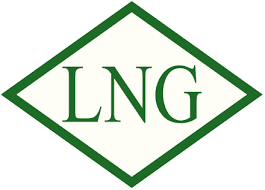Natural gas causes half the amount of pollution as that of coal for power generation, which makes it an increasingly popular energy source. In the liquid state, natural gas can be stored and transported over long distances, which contributes to expanding the supply and enhance energy security in the long run. Liquefied natural gas accounts as the main alternative to piped gas for regions or countries that are not connected by pipelines.
The liquefied natural gas (LNG) industry though relatively new, now is an indispensable part of the global energy market, says a new report from Transparency Market Research. Liquefied natural gas trade has increased exponentially in the last two decades and is expected to double in the forthcoming years.
Q. How economical is the use of LNG in place of natural gas?
A. The use of LNG in place of piping natural gas has high-cost implications. This is mainly related to the special terminals required for the liquefaction and regasification processes. The construction of specialty infrastructure is very expensive, which is the reason for their limited number across the world. According to the International Gas Union, currently only 28 countries across the world have regasification terminals, although some more are under development.
Q. What is the demand scenario of LNG in Europe?
A. The LNG market in Europe is characterized by decline in the domestic consumption and an even more rapid decline in domestic production. Due to the recent economic slump, the region is largely dependent on imports, which is likely to increase in the near term and in the long term. Other than this, the recent drop in gas prices complemented with their abundant supply and a weak global economy has led to the diversion of LNG supplies to Europe.
The liquefied natural gas (LNG) industry though relatively new, now is an indispensable part of the global energy market, says a new report from Transparency Market Research. Liquefied natural gas trade has increased exponentially in the last two decades and is expected to double in the forthcoming years.
Q. How economical is the use of LNG in place of natural gas?
A. The use of LNG in place of piping natural gas has high-cost implications. This is mainly related to the special terminals required for the liquefaction and regasification processes. The construction of specialty infrastructure is very expensive, which is the reason for their limited number across the world. According to the International Gas Union, currently only 28 countries across the world have regasification terminals, although some more are under development.
Q. What is the demand scenario of LNG in Europe?
A. The LNG market in Europe is characterized by decline in the domestic consumption and an even more rapid decline in domestic production. Due to the recent economic slump, the region is largely dependent on imports, which is likely to increase in the near term and in the long term. Other than this, the recent drop in gas prices complemented with their abundant supply and a weak global economy has led to the diversion of LNG supplies to Europe.
As per the estimates of the International Energy Agency and the European Commission, this trend is expected to continue in the forthcoming years. The emergence of new LNG suppliers and the increasing probability of U.S. shale gas being exported as LNG will further reshape the energy landscape in Europe.
Q. What are the advantages of LNG in the industrial sector?
A. The use of LNG as an operational fuel across a host of industries offers numerous advantages. Industrial processes require significantly large quantities of distillate fuels, thus the transition from conventional fuels to LNG can help in significant capital saving for industries. The use of LNG for various industrial equipment such as drilling equipment, mining equipment, and industrial boilers is cost-effective and is emission-free. In many parts of the world, governmental regulations mandate the use of LNG in the industrial sector to curb greenhouse gas emissions.
Q. How has the Panama Canal Expansion Program benefitted LNG trade?
A. In a significant industry development, the U.S. has shipped its first LNG cargo via the expanded Panama Canal. The use of this canal has reduced the distance between export plants located along the Gulf of Mexico and Asia from 16,000 miles to 9,000 miles. The Maran Gas Apollnia tanker of Royal Dutch Shell that was loaded at the Sabine Pass LNG export plant of Cheniere Energy located in Louisiana is scheduled to arrive at the Panama Canal on July 25, 2016. This opening of this trade route will add a new dimension to the LNG export capacity of the U.S.

No comments:
Post a Comment